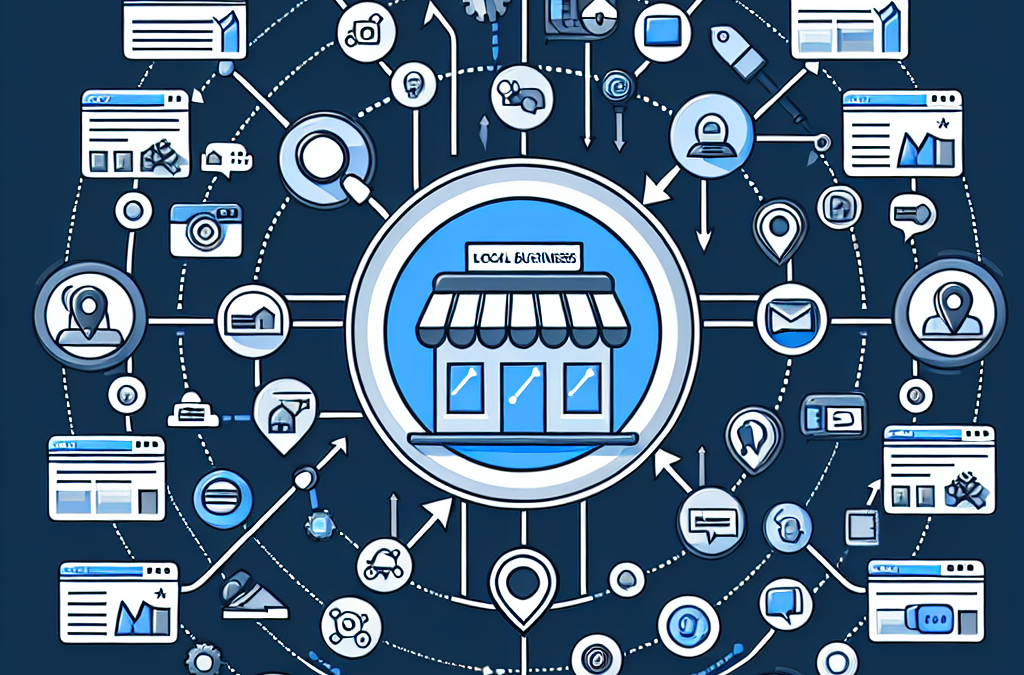Understanding Backlinks and Their Importance
What Are Backlinks?
Backlinks, or inbound links, are links from one website to another. Think of them as votes of confidence from one site to another. In my experience, backlinks indicate to Google that your content is valuable and trustworthy. When you have quality backlinks coming from reputable sources, it signals to search engines that your site deserves higher rankings.
Not all backlinks are created equal, though. The quality and relevance of the linking site play a crucial role. I always recommend focusing on earning backlinks from sites that are relevant to your niche. For local businesses, these could be local news sites, community blogs, or business directories.
Knowing what backlinks are and why they matter is fundamental to boosting local SEO. By grasping this concept, you’ll be better equipped to pursue effective link-building strategies for your business.
The Impact of Backlinks on Local Rankings
How Backlinks Influence Search Results
In the realm of local SEO, backlinks are one of the most significant ranking factors. When Google sees that other local businesses or organizations are linking to you, it’s a stamp of approval. In my own experience, businesses that prioritize acquiring local backlinks often see noticeable improvements in their search visibility.
Moreover, backlinks contribute to the overall authority of your website. The more authoritative your site appears, the higher you will likely rank in local search results. It’s really about building relationships within your community and earning recognition for your expertise.
Ultimately, the right kind of backlinks can help your business show up on the coveted first page of search results, drawing in those all-important local customers.
Strategies for Earning Local Backlinks
Utilizing Local Partnerships
One of the best strategies to earn local backlinks is to form partnerships with other local businesses or organizations. Collaborations can range from co-hosting events to creating joint promotions. When both parties link to each other’s sites, it’s a win-win situation.
For instance, if you own a local bakery, collaborating with a nearby coffee shop could lead to mutual backlinks on each other’s websites. Additionally, these partnerships can help attract a new customer base that may not have known about your business otherwise.
Communication is key here. Reach out to other business owners or local nonprofits, and see if there’s an opportunity for collaboration. You might be surprised by how many might be interested!
Measuring the Effectiveness of Your Backlinks
Tools for Tracking Backlink Performance
Once you’ve started building backlinks, it’s essential to measure their effectiveness. Tools such as Google Analytics, Ahrefs, or SEMrush can help you track where your traffic is coming from and how well your backlinks are performing.
In my own experience, I often found insights that shaped my link-building strategies further. For example, if a particular page is driving a lot of traffic due to backlinks, it might be worth creating more content around that topic to sustain interest.
Besides tracking traffic, keep an eye on your site’s domain authority and page authority metrics. Increases in these areas are often direct indicators of successful backlink efforts.
Common Mistakes to Avoid in Local SEO Backlinking
Avoiding Low-Quality Links
While it might be tempting to chase after as many backlinks as possible, I’ve learned that quality trumps quantity in the world of backlinks. Earning links from low-quality sites can actually harm your SEO rather than help it.
I advise clients to focus on building relationships with reputable organizations and credible websites that align with their brand. Do your due diligence and research potential backlink sources to ensure they’re a good fit.
Don’t fall for quick-fix schemes or paid links that promise instant results. These tactics can lead to penalties from search engines and can dig your local SEO efforts a deeper hole.
Conclusion
Building a solid backlink profile is an essential step toward enhancing your local SEO strategy. By understanding the role of backlinks, effectively measuring their performance, and avoiding common pitfalls, you can position your business for better visibility in search engines and attract more local customers. Remember, it’s about building valuable connections, not just collecting links!
FAQs
1. What type of backlinks are most beneficial for local SEO?
High-quality backlinks from relevant local sites, such as local news outlets, community blogs, and business directories, are the most beneficial for local SEO.
2. How can I find opportunities for local backlinks?
Look for local partnership opportunities, sponsorships, and guest blogging on local sites. Networking within your community can also yield great backlink opportunities.
3. What tools can I use to track my backlinks?
Tools like Google Analytics, Ahrefs, and SEMrush are excellent for tracking your backlinks and measuring their effectiveness.
4. What mistakes should I avoid while building backlinks?
Avoid chasing low-quality or irrelevant backlinks, as they can hurt your SEO efforts. Focus on building relationships with credible and relevant sites instead.
5. How long does it take to see results from backlinking efforts?
Results can vary, but generally, you might start to see changes in your rankings after a few weeks, although it can take longer for the full impact of your efforts to be realized.


